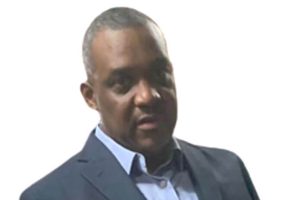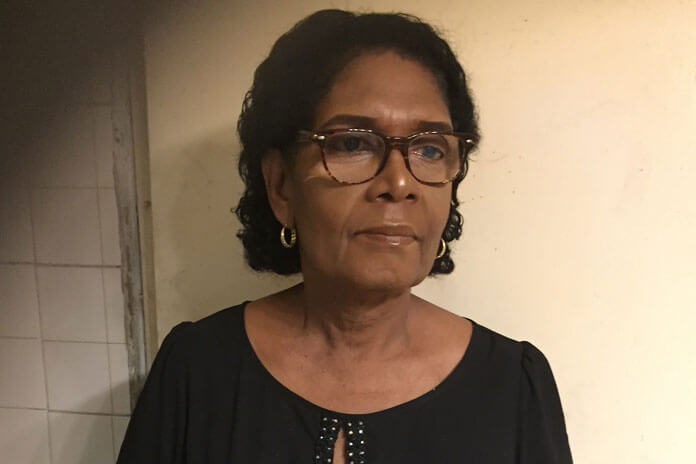
Andrew Enriquez, a prominent member and activist of Belize’s Diaspora in New York, at 53, has transited to another plane. This event occurred on Friday, 18th February, 2022 after he had battled with cancer. Andrew Warren Enriquez was born in Belize City, British Honduras, now Belize, on 1st December, 1968; the son of Elias Enriquez, Esq., a New York-based lawyer, and Carol Gabourel Enriquez, an accountant. He grew up in Punta Gorda in the Toledo District, where from an early age he became immersed in his father’s Garifuna history and culture, as well as that of the Mopan and Q’eqchi Maya, on whose causes he later expended much of his time, considerable expertise and money.
While still in his teens, he was admitted to Columbia University, where he acquired a Bachelor’s degree in Mathematics and Physics, and a Master’s in Finance and Computer Science. He rejected a scholarship to acquire a Ph.D degree, as he had little interest in an academic career. He was, however, offered an appointment to teach at Medgar Evers College, a senior college of the City University of New York. And, after a lecturing stint there, he went to work for Bear Stearns, a global investment bank, headquartered in New York, where he rose to the position of Vice President of Multi Media. Andrew was also at various stages in his career a financial analyst dealing in hedge funds, real estate investments, and he served as a consultant to the government of South Africa.
Outside of these professional preoccupations, he had an online radio programme dedicated to research on Belize, and through his “Belize Abroad” and “Bel itza” media platforms, he generously shared his monumental collection of historical photographs of Belize, in addition to providing a public forum for news, articles and information affecting Belize and its future.
Andrew Enriquez came from an exceptionally diverse family background, which included the Leslie and Gabourel families on his mother’s side and the Ramclam and Enriquez families though his father. At times, he expressed his impatience to me on being bombarded with stories about his Scottish ancestor, William Gentle, Sr., or some fifth-generation-removed, aristocratic Creole progenitor, and instead preferred to highlight his Garifuna heritage, which he felt contributed most to who he was as a person. Still, this did not make him insensitive to the various issues confronting a number of his Maya friends whom he had grown up with in Toledo. For instance, eight years ago, he and his Harvard University lawyer friend, Dr. R. Morris, prepared a detailed document for the Maya and Garifuna communities of the Toledo District on “The Maya Land Rights Claim No-394-of-2013”. Moreover, he was extremely proud of his great-grandmother, Emma Mongrief Belisle Leslie, and named his holding company after her.
Andrew was indeed a rare Belizean who had many constructive ideas on Belize. Some years ago, he wanted to donate a system to the Government of Belize that would allow the police to check license plates and drivers’ license information using WhatsApp, etc. This similar technique could also be applied to conduct searches for information on land. I remember my skepticism of the government at the time and commented that some people “up there” would want to make a lot of money out of it for themselves, and his good-humored retort was: “Yeah! Pay to donate”. Just recently, when we discussed Belize’s tourism dependency syndrome and COVID’s impact, he suggested that Belize ought to set up seaweed farms of the asparagopsis taxi formis species. This, he enthused, could become a new industry geared towards exporting to Argentina and Texas, which logistically would be ideal markets for Belize. He mentioned an Australian company producing seaweed supplements for cows, and directed me to studies, on how seaweed feed helps cows to slow methane emissions, which contribute hugely to climate change.
Anyone exposed to Andrew for just a few minutes had much to learn from this widely travelled, incessantly curious, avid researcher and archivist, and highly knowledgeable Belizean. His research interests were as varied as they were instructive; and he once showed me a map from the 1800s with the labeled location of an area in Belize City that was called “Ebo Town”, which proved that among the African ancestors of the Creoles were the Igbo of southeast Nigeria. He also acquired solid evidence that in 1972, when Idi Amin had ordered the expulsion of South Asian Indians from Uganda, what was indeed not well-known, was that the British actually considered settling them in Belize.
Andrew had astute and independent views on most of the pertinent issues affecting his beloved Belize. These were as diverse as Guatemala’s occupation of the Sarstoon, Belize’s Maritime Act and the controversial 7th Amendment of Belize’s Constitution on dual nationality. This vexatious provision prohibits born Belizean dual nationals from being able to serve in all levels of government, yet a Chinese born in Taiwan, or a mestizo born in Guatemala — a nation which does not recognize Belize’s territorial integrity — can run for electoral office in Belize! Andrew’s views on the role of Belize’s Central Bank were particularly cogent, and those on issues like de-risking and superbonds for Belize were pragmatic and borne from his professional experience. To all who came in contact with him, his understanding of Belizean concerns and his unstinting devotion to the country of his birth were permanent features of his short but useful life.
One rare aspect of Andrew was his dual persona. He was at once an intensely private individual and yet a committed and caring family man who hosted regular family gatherings in his beautiful New York, brownstone home. He used to drive his daughters to school, and with his wife, Coretta, whom he was particularly close to, take them on holidays to Ghana to visit her relatives there. He bore his declining health in stoical silence, and therefore his transition came as a cruel blow to his many relatives and friends. Yet, Andrew was also a man of the people, with a very public presence, always ready to listen and assist those who came to unburden their problems to him.
His last communication to me, was: “Please take care of your health. Been trying to recalibrate my plans. Trying to see if I can travel again”. Yes — my brilliant, innovative kinsman and friend, Andrew Warren Enriquez, has indeed exited from this plane to travel, but specifically to another realm, where he has now joined his illustrious ancestors. Left to mourn him are his parents; his wife, Coretta, and daughters — Olivia, Isabella and Lily; his aunt, Jeanette Ramclam; siblings — Michael, Elicia, David and Michael, as well as nieces, nephews, cousins, and his in-laws in Ghana.
Thérèse Belisle-Nweke
Lagos,
NIGERIA

